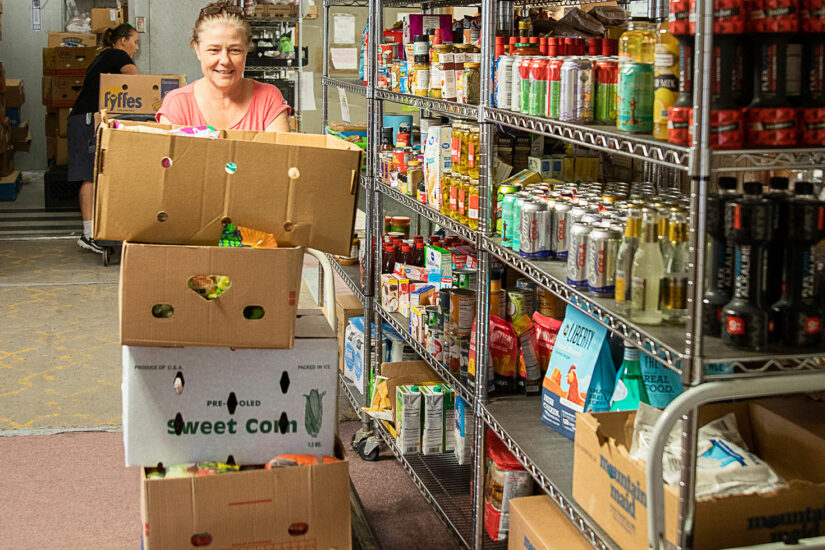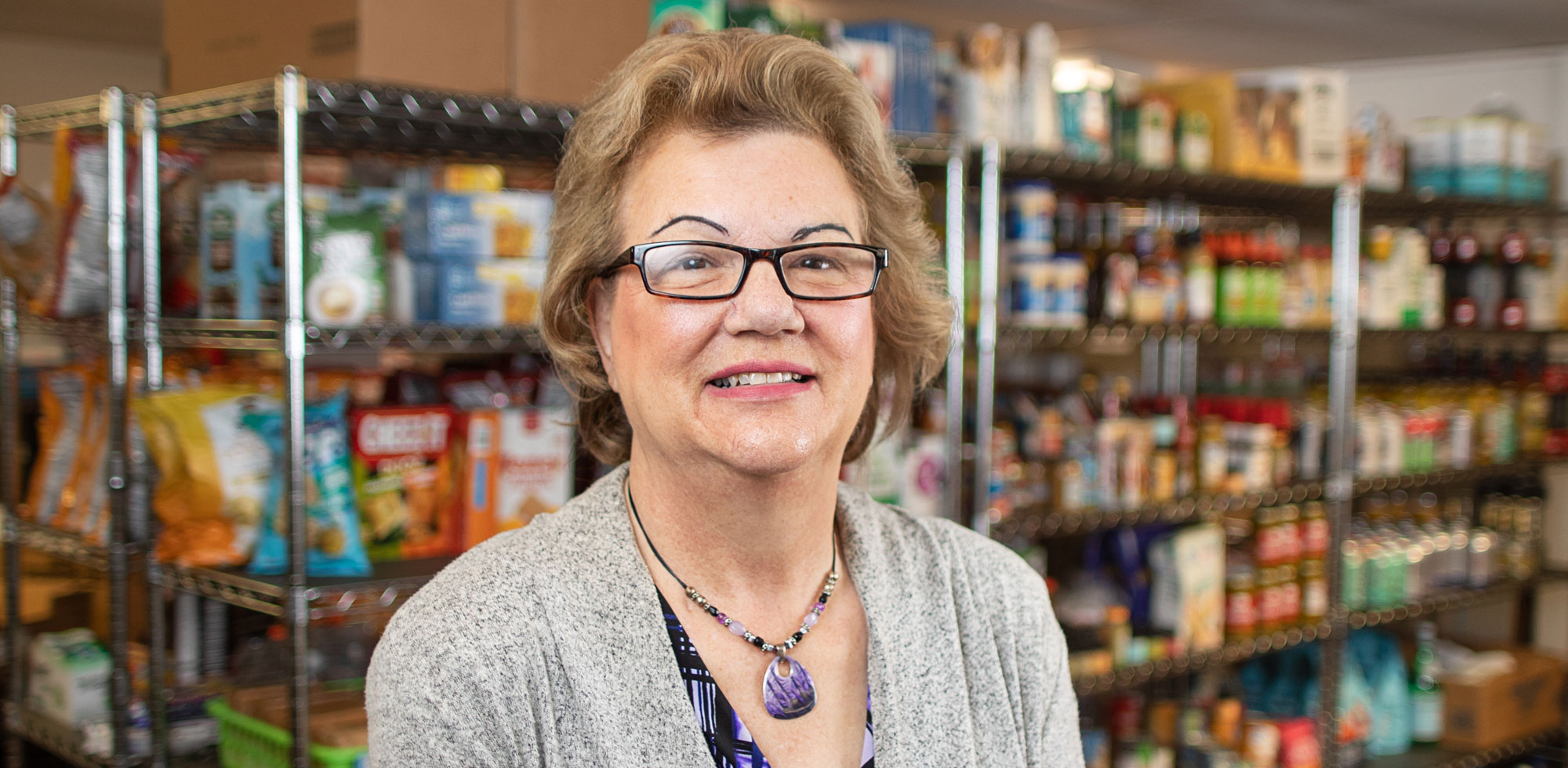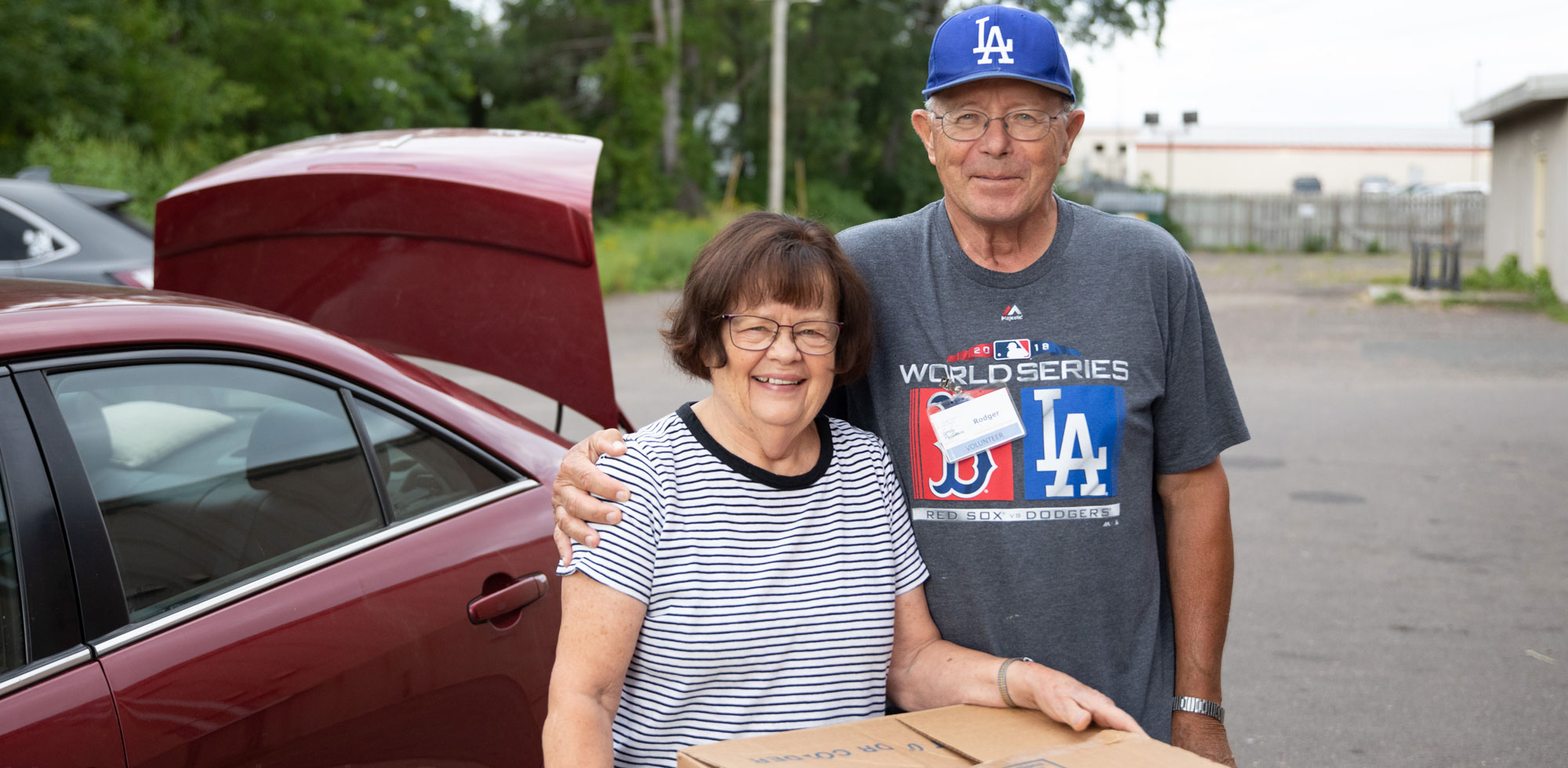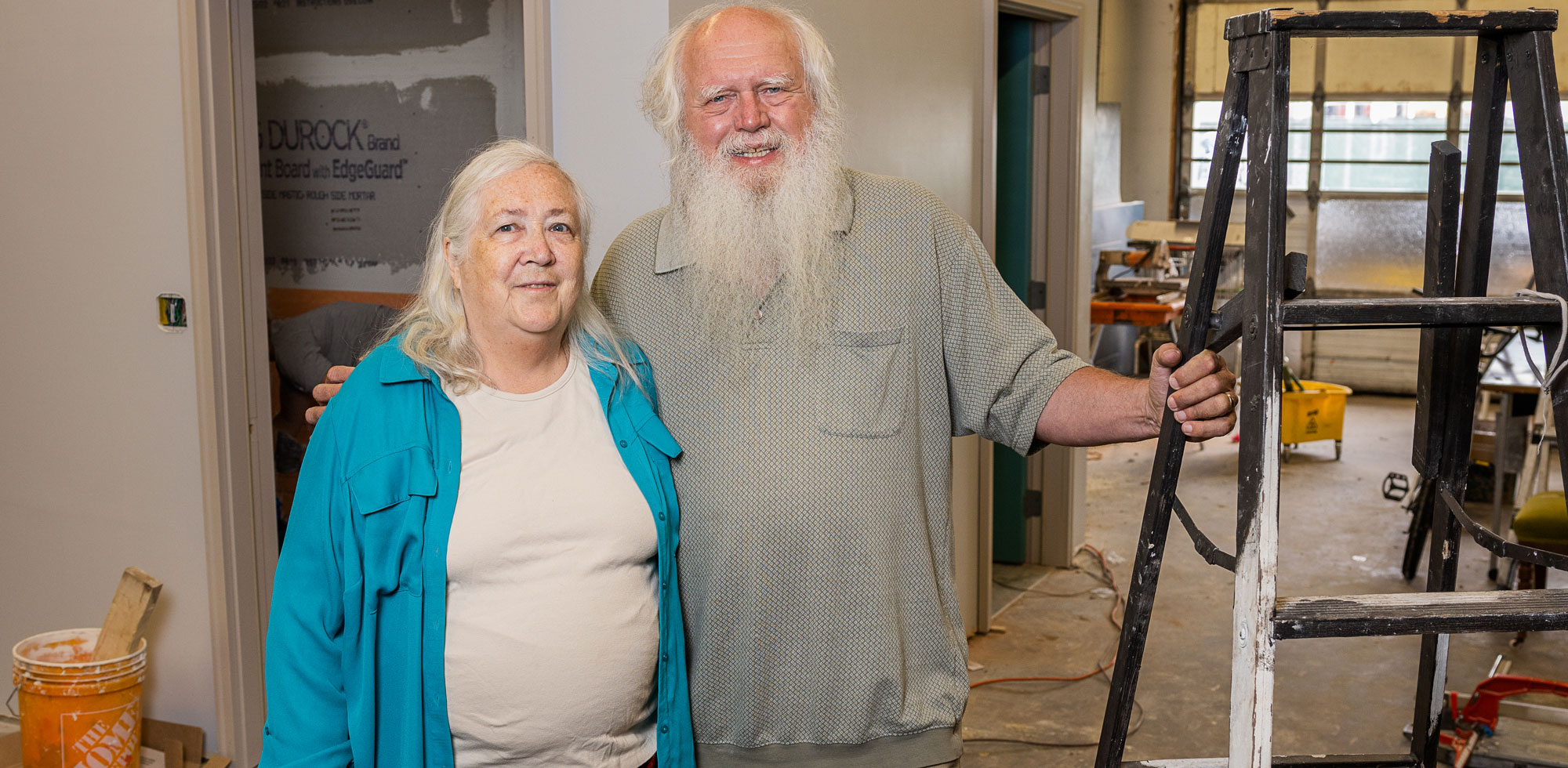
Changing for the Better
A special grant round is helping regional nonprofits use lessons learned from the pandemic to transform the ways they deliver services.
By Gene Rebeck | Photography by John Linn and Michael Schoenecker
Call her Alison. Last year, she wrote a letter to New Pathways, a Cambridge-based nonprofit that provides support to Central Minnesota families experiencing homelessness. In her letter, Alison shared a story of the last two decades and the difficulties she and her family faced without a place to call home.
New Pathways and its Path to Home shelter program helped Alison and her family resolve their housing crisis. Alison expressed gratitude to New Pathways for extending the help she and her family “so desperately” needed. “Not only did [New Pathways and its volunteers] extend a hand up, they guided me back on path to self-sufficiency and success.”
Like many nonprofits, New Pathways was hit hard by the pandemic. But thanks to a grant from the Initiative Foundation and its $1 million-plus Transformative Funding for Nonprofits program, New Pathways is one of 15 Central Minnesota organizations that can reinvent the way it delivers services to help people like Alison while adapting to better address changes in client and community needs.
New Pathways’ flagship Path to Home program has worked with area churches to provide overnight shelter to homeless families. When the pandemic hit in 2020 and churches locked down, the organization pivoted and put families in local hotels. But funding was tight. “Every week I had to evaluate, ‘Will we have to shut down?’” recalled Mary Westlund, New Pathways executive director.
A state grant helped New Pathways maintain its hotel program through September. It then reverted to its church-based model.
The pandemic highlighted vulnerabilities in New Pathways’ program. Similar programs nationwide have been forced to close; many haven’t reopened. Westlund and her colleagues have often discussed transitioning Path to Home from the churches to a site that it would operate. “But we’ve never had the support around us to do the proper planning and figure out if it’s viable,” she said.

Making Change With Big Money
The Transformative Funding program exists because of COVID-19 and the Otto Bremer Trust, which last year awarded the Initiative Foundation $2 million to help nonprofits and small businesses hit by the pandemic. The Foundation split the award between the two sectors.
“This is by far the largest grant program for nonprofits that we have had in recent memory, if not the largest ever,” said Zach Tabatt, Initiative Foundation nonprofit development program officer. A typical Initiative Foundation grant is around $5,000, with some ranging up to $10,000. “This was our rare opportunity to offer much more significant funding,” Tabatt added. The Transformative Funding checks sent out this summer range from $50,000 to $100,000.
When the Otto Bremer Trust funds became available, the Initiative Foundation invited regional nonprofits to request consideration for grants. More than 70 organizations replied. The Foundation then invited 25 nonprofits to officially apply. It also did something it had never done before: It paid for consultants to help eligible nonprofits develop and refine their proposals to maximize the potential for positive impact. “We let the organizations tell us what was most important for them,” Tabatt said. “Our only guideline was that we were looking for organizations to transform themselves for the future—to really build added strength and impact.”
Cambridge-based Family Pathways, which operates separately from New Pathways, serves about 20,000 people annually. About 85 percent of its work is food access, a mission it has fulfilled primarily through its nine Central Minnesota food shelves. “We learned so much during COVID-19 about some of the barriers people face to using our food shelves,” said Sonia Palmer, Family Pathways’ director of advancement. “There were so many people falling through the cracks because they weren’t able to make it to a food shelf.”
When lockdowns kept seniors away, Family Pathways launched twice-a-month curbside and doorstep deliveries. It also introduced “pop-up” mass distribution locations, where people drive up to receive food. When the nonprofit learned about the Transformative Funding program, they knew they could use the funds to transform their program to be more accessible.
“We know there are so many people in outlying areas that we’re not reaching,” said Kathy Wills, director of food access and equity with Family Pathways. “We want to open up doorstep delivery to all of our communities, people of any age, whose situation prevents them from coming [to the food shelves].”
This past June, Family Pathways ordered a cargo van that can accommodate three to four pallets of food. While the organization is waiting for the van to arrive, it has been renting vehicles and developing other workarounds.
Though Family Pathways’ food shelves continue to be widely used, the Transformative Funding program is allowing the nonprofit to deliver on its food mission in ways that work best for the people it serves. “COVID-19 really showed us: There’s a whole new world out there to get people food,” Wills said. “And we have to adjust to it.”

Finding Home
The idea behind St. Cloud-based Homeless Helping Homeless, founded four years ago, is that the homeless can do a lot for themselves, said executive director Harold Fleegel. They just need the resources and the contacts. The organization’s board chair is formerly homeless, as are some of its officers.
When the pandemic hit, Homeless Helping Homeless established a program that housed people in area hotels. When that ended during fall 2020, many homeless shifted to living in an encampment, which was a disaster, Fleegel said. The city of St. Cloud proposed that Homeless Helping Homeless manage a facility the city would provide. Lincoln Center, which opened in November 2020, is a low-barrier shelter and oftentimes a last resort for many homeless people. It originally consisted of one large open room that could accommodate 19 people. The city later provided office dividers so residents would have their own space.
However, the doorless dividers lacked privacy and security. Homeless Helping Homeless is using its Transformative Funding grant to construct individual locked rooms for residents. Once these modules are in place, Lincoln Center will be able to increase capacity to 25.

“We wouldn’t have been able to do this remodel without the Initiative Foundation,” Fleegel said. “Or we would have had to take a lot longer time to get it going because we would have had to raise the money piecemeal. We want to get this done before winter because we don’t want anybody outside freezing to death.”
New Pathways is also looking to reinvent its shelter program. It’s using its Transformative Funding grant to explore and plan on transitioning the shelter model from a church-rotation style to a site-based model, executive director Westlund said. “I don’t know what that’s going to look like—that’s part of the process. But it would provide sustainability and stability to our program and to our clients.”
New Pathways operates the only family shelter program in Isanti, Chisago, Kanabec and Mille Lacs counties. “If we’re not here, there would be a huge gap,” Westlund noted. By filling that gap, New Pathways has helped many people transform their lives. Just ask Alison.
Learn more about the Transformative Funding for Nonprofits grantees.